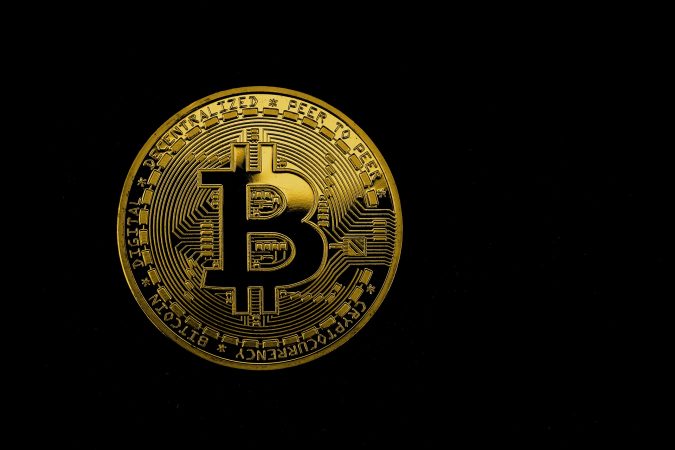There is no doubt that May was a very difficult month for the cryptocurrency market, and bitcoin in particular. On 13 May, Tesla CEO Elon Musk decided to take on the leading cryptocurrency that he himself has backed.
Musk, who has always been an influencer and advocate of cryptocurrencies, including Dogecoin, of which he is the self-proclaimed "Dogefather", said that due to the high environmental costs of mining Bitcoin, Tesla would stop accepting it as a method of payment.
How did the Bitcoin scare begin?
This powerful message created a wave of FUD in the market, especially coming from the same person who, just three months earlier, had declared that his electric car company accepted bitcoin as a method of payment and had invested $1.5 billion in BTC, which boosted bitcoin purchases and the bitcoin price.
However, after this change, the cryptocurrency market suffered drastically from this decision, as rumours spread on the interwebs that Tesla had even exited its position in BTC among others, ultimately sinking the price of Bitcoin.
His statements clearly sent shockwaves through institutional investors, who closed their positions in the cryptocurrency within hours, along with many other small investors, withdrawing more than $300 billion from the market.
As a result, the downward spiral of the bitcoin market dragged the rest of the cryptocurrencies with it, sinking them to levels close to those seen in January at the start of this year 2021.
Ethereum, which was having its best time of the year, scoring all-time highs above $4,000, collapsed.
But the worst was yet to come. A few days later, just as the market was beginning to regain confidence, the People's Bank of China (PBOC), the country's central bank, announced a worrying measure, which was the second major blow.
The PBOC issued a statement reiterating that digital tokens in general, cannot be used as a form of payment in the Asian country, thus imposing more restrictions on cryptocurrencies, than were already imposed years ago.
Again, news that generated FUD in the market, sending the value of bitcoin plummeting to $31,000, a figure that represents less than half of the price reached in April, when it peaked at an all-time high of over $64,000.
As the market tried not to collapse, the European Central Bank (ECB) itself joined the wave of doubts, noting in its May Financial Stability Review (FSR) that bitcoin is a "risky and speculative" asset and that it generates an "exorbitant carbon footprint" for the planet.
The BCV, putting more sauce on a market that was trying to hold on to something to keep from collapsing further, having lost half its value. And just as the attacks couldn't stop, the US Fed itself did the same when its chairman announced that it was going to explore the digital dollar.
Jerome H. Powell, via a video message, said that the Fed plans to publish a report in the summer that will explore the implications of technology in digital payments, including a section focusing on the possibility of this institution issuing its own CDBC.
As if market jitters weren't enough, Hong Kong's Treasury and Financial Services Bureau (FSTB), has also published the results of its consultation on a potential ban on cryptocurrency retailing, which began in November 2020.
This decision by Hong Kong's FSTB could facilitate a full licensing regime for the cryptocurrency exchanges already licensed there, which will only be accessible to qualified investors.
Qualified investors, under Hong Kong law, are those with portfolios valued at HK$8 million (around US$1 million), leaving cryptocurrency trading to wealthy individuals only.
However, the most recent attack that added confusion to a fearful market came from Bank of Japan governor Haruhiko Kuroda, who joined the chorus of central bankers who have criticised bitcoin and cryptocurrencies, questioning their value.
According to Kuroda, who was interviewed last Thursday by Bloomberg, bitcoin "is hardly used as a means of payment or unit of account." He also added that "most transactions are speculative and volatility is extraordinarily high".
The BoJ governor's comments triggered another market correction, sending the bitcoin market down 11% on Friday, shaking the $35,000 level it had struggled so hard to maintain.
The rest of the cryptocurrencies were also dragged down by the new FUD added by Kuroda, sending Ethereum's ether down 14%, while Cardano's ADA and BNB's Binance Coin lost up to 15% of their value.
This FUD was very strong, because generally, the BoJ's highest authority has always been one of the financial players, more cautious when it comes to analysing and giving a verdict on cryptocurrencies, especially because the country's major companies have billion-dollar positions in this market.
Although it seems that everything points towards a generalised strategy by the world's Central Banks, to discredit the private cryptocurrency market, in favour of their own CBDC. In this sense, as we know, the BoJ has been working for some time on its CBDC in order to have a digital Yen.
While it is true that CBDCs have generally taken on board the concept and some of the technology of bitcoin, to push their own centralised and digital fiat currency, in order to facilitate payments, reduce costs, transactions and compete with new forms of money, they are doing so by destroying the credibility of private cryptocurrencies.
Be that as it may, this massive FUD from Musk to Kuroda has been successful, as it's no secret that the popular phrase "there's nothing more cowardly in the world, than a million dollars in a market" is a reality that reflects investor sentiment at the moment.
These attacks coupled with the daily criticism from "prestigious economists", all over the world, in dozens of different languages, in thousands of media and social networks, assuring that bitcoin as a currency has no value and is not an asset, show the scale of the battle being waged against bitcoin and cryptocurrencies.
The fragility and high volatility of cryptocurrencies in general is reflected in the number of corrections that are preventing bitcoin from reaching the $50,000 mark again, but are also preventing other cryptocurrencies from reaching the market value they had in April.
However, in this battle that, on a daily basis, is being waged against the cryptocurrency market in general, has fortunately defended Ray Dalio, Cathie Wood, Jack Dorsey, among others, generate news to try to lower the FUD of the market, although sometimes their efforts are futile.
In fact, last week, what is practically the world's largest bank, electronic payments giant, PayPal said it would allow its users to send and withdraw cryptocurrencies to third-party wallets outside the platform.
Perhaps news like this will bring oxygen to an ecosystem that is under attack from the FUD sent out by Musk, bankers and the many opinion formers who criticise bitcoin and cryptocurrencies in general, receiving all the attention from the mainstream media.










